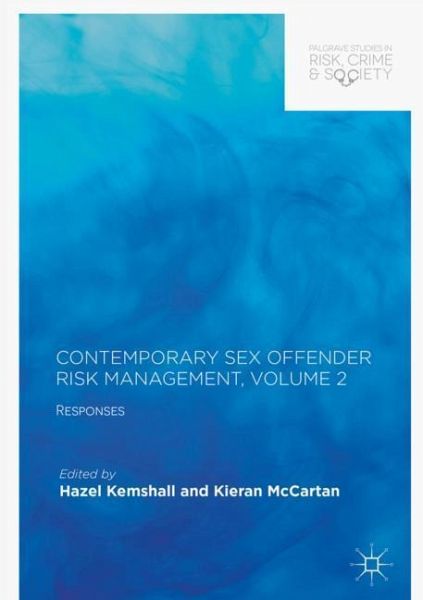
Contemporary Sex Offender Risk Management, Volume II
Responses
Herausgegeben: Kemshall, Hazel; McCartan, Kieran

PAYBACK Punkte
57 °P sammeln!
This book, the second of two volumes edited by Kemshall and McCartan, focuses on responses to sexual offending, and how risk is used by policy makers, stakeholders, academics and practitioners to both construct and respond to unknown and known sex offenders within the contexts of criminal justice, health and social policy. The chapters provide an oversight of contemporary policies, practices and debates within the area to help both professionals and researchers.The collection focuses on emerging areas (crime linkage, predictive policing, sexual offending across borders, desistence, and public ...
This book, the second of two volumes edited by Kemshall and McCartan, focuses on responses to sexual offending, and how risk is used by policy makers, stakeholders, academics and practitioners to both construct and respond to unknown and known sex offenders within the contexts of criminal justice, health and social policy. The chapters provide an oversight of contemporary policies, practices and debates within the area to help both professionals and researchers.
The collection focuses on emerging areas (crime linkage, predictive policing, sexual offending across borders, desistence, and public health approaches), as well as more traditional topics (multi-agency working, risk assessment, sex offender policies, and treatment). The authors examine how professionals can use multi-agency approaches to prevent sexual violence, and assessing the impact of desistance on framing sex offender management. A bold and engaging volume, this edited collection will be of great importance to scholars and practitioners working reframing traditional approaches to sex offender management in a contemporary fashion.
The collection focuses on emerging areas (crime linkage, predictive policing, sexual offending across borders, desistence, and public health approaches), as well as more traditional topics (multi-agency working, risk assessment, sex offender policies, and treatment). The authors examine how professionals can use multi-agency approaches to prevent sexual violence, and assessing the impact of desistance on framing sex offender management. A bold and engaging volume, this edited collection will be of great importance to scholars and practitioners working reframing traditional approaches to sex offender management in a contemporary fashion.












